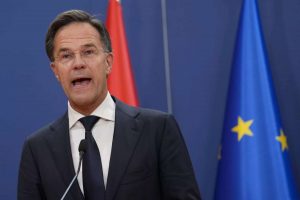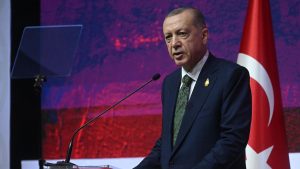Romanians vote in parliamentary elections on Sunday, with the governing pro-European liberals tipped to win despite criticism for their handling of the coronavirus pandemic.
Polling stations open at 7:00 am (0500 GMT) and close at 9:00 pm, when an exit poll will be published by the local media.
The first official results are expected later in the evening.
The vote has been organised to take in the now familiar virus safety measures of social distancing, mask-wearing and hand disinfectant.
In a region where populists and nationalists have recently gained ground, liberal Prime Minister Ludovic Orban has pledged to modernise one of the EU’s poorest countries and keep it on a “pro-European” path.
Orban has been running a minority government for the past year.
A recent opinion poll published by the IMAS institute showed his National Liberal Party (PNL) garnering 28% of the vote, ahead of the main opposition Social Democratic Party (PSD) at 23%.
The recently-formed centre-right alliance USR-Plus are forecast to win 18%, which would bolster their growing influence in Romanian politics.
Both the virus and widespread disillusionment with politics are expected to weigh on turnout, which is not expected to exceed 40%.
The liberals have the advantage of being supported by President Klaus Iohannis, who has brushed aside criticism that he is disrespecting his constitutional role by campaigning for the PNL.
On Friday, the last day of the campaign, he launched a new attack on the PSD, saying he hoped “Romania will definitively separate from those who have tried to derail it from its European and democratic course”.
The left-wing PSD is the heir to the former Communist Party and has dominated Romanian politics over the past 30 years.
It won by a landslide in the previous election in 2016, but its years in power were marked by massive anti-corruption protests and spats with Brussels over controversial judicial reforms.
Weakened further by the imprisonment on corruption charges of its former leader Liviu Dragnea, the PSD was removed from power through a no-confidence vote at the end of 2019 and is now trying to bounce back.
“The stakes in the elections are huge,” Orban said in a recent interview with AFP.
“A high turnout is crucial for Romania to continue moving in the right direction, namely respect for fundamental rights and freedoms, rule of law, and being a loyal member of the EU and NATO”, he said.
The new head of the PSD, Marcel Ciolacu, who has carefully distanced himself from Dragnea, has accused the government of “incompetence” and failing to keep the spread of the coronavirus under control.
“The real virus that Romania is facing is (…) the PNL,” he said recently said on Facebook.
“To stem the pandemic, we must first prevent the liberals from staying in power, from closing schools, churches and markets,” he said, reflecting the PSD’s sceptical attitude towards anti-coronavirus measures.
The current government insists a full-blown second lockdown is not on the table and has so far resorted to night curfews and local restrictions to try to stem the effects of the second wave.
Epidemiologists fear this will not be enough to ward off an explosion of cases in the weeks to come. Understaffed and with poor infrastructure, Romania’s hospitals are already struggling to cope with the influx of patients in intensive care units.






